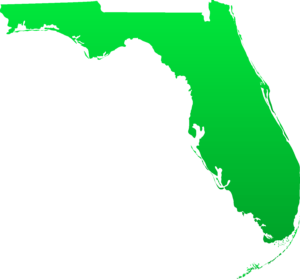(a) Petition for Appointment of Guardian Advocate. A petition to appoint a guardian advocate for a person with a developmental disability may be executed by an adult person who is a resident of this state. The petition must be verified by the petitioner and must state:
(1) the name, age, and present address of the petitioner and the petitioner’s relationship to the person with a developmental disability;
(2) the name, age, county of residence, and present address of the person with a developmental disability;
(3) that the petitioner believes that the person needs a guardian advocate and the factual information on which such belief is based;
(4) the exact areas in which the person lacks the ability to make informed decisions about the person’s care and treatment services or to meet the essential requirements for the person’s physical health or safety;
(5) the legal disabilities to which the person is subject;
(6) if authority is sought over any property of the person, a description of that property and the reason why management or control of that property should be placed with a guardian advocate;
(7) the name of the proposed guardian advocate, the relationship of the proposed guardian advocate to the person with a developmental disability, the relationship of the proposed guardian advocate with the providers of health care services, residential services, or other services to the person with developmental disabilities, and the reason why the proposed guardian advocate should be appointed. If a willing and qualified guardian advocate cannot be located, the petition must so state;
(8) whether the petitioner has knowledge, information, or belief that the person with a developmental disability has executed a designation of health case surrogate or other advance directive under chapter 765, Florida Statutes, or a durable power of attorney under chapter 709, Florida Statutes, and if the person with a development disability has executed any of the foregoing documents, an explanation as to why the documents are insufficient to meet the needs of the individual; and
(9) whether the petitioner has knowledge, information, or belief that the person with a developmental disability has a preneed guardian designation.
(b) Notice.
(1) Notice of the filing of the petition must be given to the person with a developmental disability, both verbally and in writing, in the language of the person and in English. Notice must also be given to the person with a developmental disability’s next of kin, any designated health care surrogate, an agent designated in a durable power of attorney, and such other persons as the court may direct. A copy of the petition to appoint a guardian advocate must be served with the notice.
(2) The notice must state that a hearing will be held to inquire into the capacity of the person with a developmental disability to exercise the rights enumerated in the petition. The notice must also state the date of the hearing on the petition.
(3) The notice must state that the person with a developmental disability has the right to be represented by counsel of the person’s own choice and, the court must initially appoint counsel.
(c) Counsel. Within 3 days after a petition has been filed, the court must appoint an attorney to represent a person with a developmental disability who is the subject of a petition to appoint a guardian advocate. The person with a developmental disability may substitute his or her own attorney for the attorney appointed by the court.
(d) Order. If the court finds the person with a developmental disability requires the appointment of a guardian advocate, the order appointing the guardian advocate must contain findings of facts and conclusions of law, including:
(1) the nature and scope of the person’s inability to make decisions;
(2) the exact areas in which the person lacks ability to make informed decisions about care and treatment services or to meet the essential requirements for the individual’s physical health and safety;
(3) if any property of the person is to be placed under the management or control of the guardian advocate, a description of that property, any limitations as to the extent of such management or control, and the reason why management or control by the guardian advocate of that property is in the best interest of the person;
(4) if the person has executed a designation of health care surrogate, other advance directive, or durable power of attorney, a determination as to whether the documents sufficiently address the needs of the person and a finding that the advance directive or durable power of attorney does not provide an alternative to the appointment of a guardian advocate that sufficiently addresses the needs of the person with a developmental disability;
(5) if a durable power of attorney exists, the powers of the agent, if any, that are suspended and granted to the guardian advocate;
(6) if an advance directive exists and the court determines that the appointment of a guardian advocate is necessary, the authority, if any, the guardian advocate shall exercise over the health care surrogate;
(7) the specific legal disabilities to which the person with a developmental disability is subject;
(8) the name of the person selected as guardian advocate; and
(9) the powers, duties, and responsibilities of the guardian advocate, including bonding of the guardian advocate as provided by law.
(e) Issuance of Letters. Upon compliance with all of the foregoing, letters of guardian advocacy must be issued to the guardian advocate.

